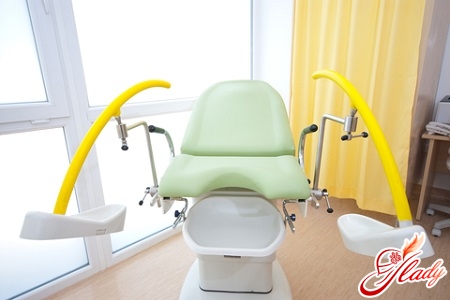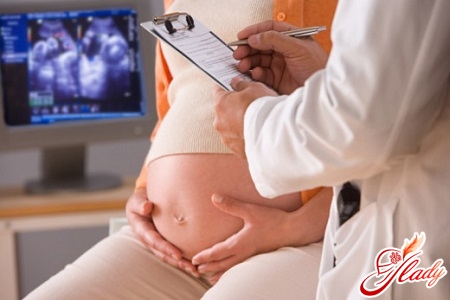
Very often it happens that young peopleface an unwanted pregnancy. The reasons for this may be non-compliance with the rules of contraception, a condom torn during sexual intercourse, having sex on "safe" days, which were not at all safe, the physical violence to which a woman was exposed, and others. Very rarely, the pregnancy that occurred as a result of the above reasons is desirable. Unwanted pregnancy often leads women to desire, and sometimes the need to have an abortion. Abortion in the early term implies the removal of an embryo, whose age is no more than 12 weeks, and its weight reaches only a few grams. Interruption of pregnancy in the late term is already the removal of the fetus not older than 22 weeks. Abortion procedures in the early and late periods may differ from each other due to the complexity of the operations. So, how is the abortion procedure carried out?
Methods of interruption of unwanted pregnancy
Before proceeding to the procedure itselfabortion, it is necessary to pass some tests. Among such analyzes are ultrasound, gynecological smear, blood for syphilis, HIV and hepatitis. After all the necessary tests have been handed over, you get a referral from your obstetrician-gynecologist who examined you earlier, determined the exact time of pregnancy and, in connection with all this, recommended the most appropriate way of aborting the pregnancy. If there is any infection, it is necessary to be treated without fail and only then to start the procedure of abortion. If the conception of the child is extremely undesirable for you and you finally decided to get rid of the embryo or fetus (depending on the period), then try to visit the gynecologist as soon as possible. In the absence of menstruation, you should not pull. After all, at the very initial stage, you may need only a drug interruption or a mini-abortion. This type of abortion is much higher, but it has its undeniable advantages, most important of which is the absence of surgical intervention. This type of abortion can only be carried out if the pregnancy is not longer than 8 weeks. 
More on medical abortion
In the earliest stages of conception, the embryo (fetalegg) does not yet have any close connection with the wall of the uterus. This suggests that its removal in the absence of communication with the uterus is much easier to implement than at a later date. Modern medicine has been developed so-called abortive pills, which hinder the development of pregnancy and as a result interrupt it. These drugs are represented by many different manufacturers. Among such medicines, mifegin, pencroftone, mifepristone, myfolian and others. After two days after taking the drug of abortive action, you should come to your gynecologist. It is possible that in these 48 hours with you nothing will happen, sometimes there are pulling pains in the lower abdomen. The doctor will see how the rejection of the embryo takes place and whether it occurs. There are cases when the doctor suggests other means that will help accelerate the process of rejection of the fetal egg. If after taking these medications you have a profuse and very painful menstruation, then this only indicates that embryo rejection did occur. The discharge of blood can last up to two weeks, and after the expiration of the period, a doctor's examination is again recommended. During the medical interruption of unwanted pregnancy, there may be some problems. One of the most important problems may be an uninterrupted interrupt. Such a pregnancy can no longer be maintained, a mini-abortion is required. This is due to the fact that abortive drugs cause irreparable harm to the embryo. There may be another problem - this is a heavy bleeding. In this case, surgical intervention may be required. In addition to all of the above, it can be very vomiting, pain in the abdominal region and pressure increase. The biggest advantage of this method of abortion is the lack of surgical intervention, which means that there is no possible infection and injury to the uterus. 
Some drugs of abortive action
Medical abortion is an interruptionunwanted pregnancy through medications. Does not require surgical and surgical intervention, the most reliable and painless. But this is only in the ideal. Very often, pharmaceutical (medical) abortion results in surgical intervention, as well as serious moral and physical consequences. The drug interruption of unwanted conception is, rather, a psychological factor. Women, trying to interrupt pregnancy, feel much less guilt than in an operation where a direct destruction of the fetus and its removal from the uterus is necessary. Here everything seems to be much simpler: I drank a pill, and the case is closed. But in fact it is all - also the cessation of the life of the unborn child. Abortion, carried out by a medicamentous method, almost does not differ from a surgical termination of pregnancy.
Vacuum abortion or mini-abortion
Such a method of embryo removal is possible in the case,if the gestation period does not exceed 7 weeks. Otherwise it is called a mini-abortion. This procedure is performed under general intravenous anesthesia. The operation involves the introduction of a special tube into the uterus, which has a direct connection to the device. After the device is turned on, a vacuum effect is created in the tube, as a result of which the fetal egg is absorbed into the tube and removed from the uterine cavity. The embryo is destroyed in the process of the device impact on small parts. It is not uncommon for cases when vacuum can not completely remove the embryo. In this case, you have to resort to the procedure for scraping the uterine cavity. The procedure involves removing the mucous epidermal layer of the uterus (respectively, and the embryo itself) with a curette (a special device in the form of a spoon). After the procedure is completed, a woman may have pain in the lower abdomen, as well as a discharge reminiscent of menstruation. It is possible that the doctor will prescribe a course of antibiotics. After a mini-abortion, it is recommended to do an ultrasound that will accurately confirm that the termination of the pregnancy did occur, and there were no traces left from the embryo. 
Medical abortion and termination of pregnancy at a later date
Medical termination of pregnancyis carried out in case the age of the fetus is not more than 12 weeks. The earlier the interruption of pregnancy occurs, the less likely the complications. The fetal body at this time increases by 2 times in comparison with 6 weeks of pregnancy. This suggests that the opening of the uterus will be much wider than with a mini-abortion. The doctor with the help of forceps will remove the fruit, crushing it into parts. The sensations after such an abortion are about the same as for a mini-abortion. The most difficult is the removal of the fetus over 12 weeks. It can be carried out until the 24th week of the fetus itself. If desired, such abortion can not be carried out, there should be social and medical indications. Among the social indications may be unexpected death of a husband during pregnancy, deprivation of parental rights or pregnancy resulting from rape. Interruption on such terms implies an artificial birth of the child or a cesarean section, as a result of which the fetus will be removed. This procedure lasts at least three days. During this time, expand the cervix in a woman and give her pain medications. On the third day, a woman takes a special medicine that provokes childbirth. This method of abortion is considered the most extreme and resembles a real birth, only the child as a result does not.
What consequences after an abortion can be
It is important to understand that abortion is colossalstress for the female body. The results of abortion can be the most sad. A woman after the procedure can be irritable, her sleep is visibly impaired, her work capacity will decrease. Very often the result of abortions are hormonal failures that require treatment. The immune system as a result is markedly reduced, the risk of diseases is significantly increased. There may be inflammatory and infectious diseases. Often, such diseases lead to infertility. Very often a woman needs psychological help. Before deciding on an abortion, think carefully and weigh up the pros and cons. Perhaps you will make the right decision, the result of which will be the birth of a healthy child, capable of beautifying your life. We wish you health and success in choosing the right solution.









